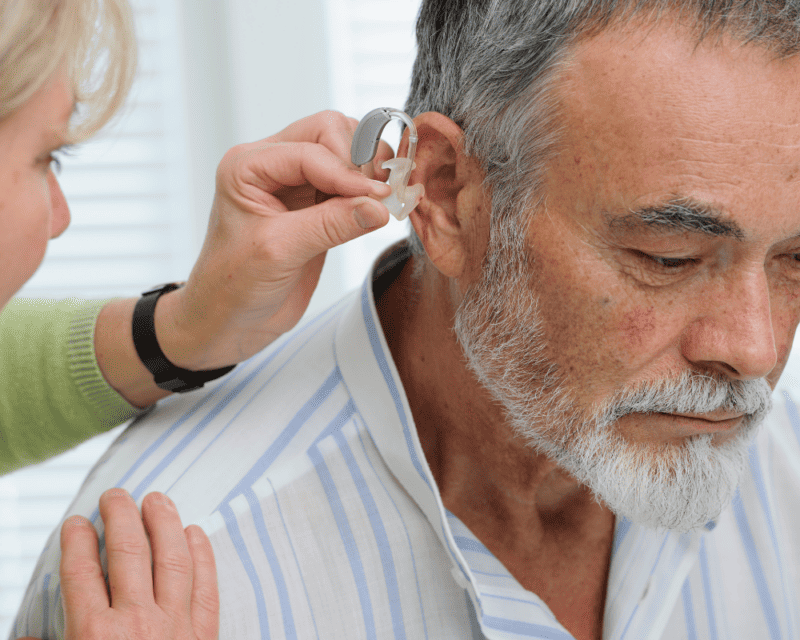As we age, various aspects of our health require attention, and hearing health is no exception. For seniors, maintaining good hearing is crucial for overall well-being and quality of life.
Hearing loss can lead to social isolation, communication difficulties, and a decline in cognitive abilities. Unfortunately, hearing aids, which are often the solution for those with hearing impairments, can be costly and inaccessible for many seniors.
The Impact of Hearing Loss on Seniors’ Lives

Hearing loss can significantly impact the lives of seniors in several ways. Social interactions become challenging, leading to feelings of isolation and loneliness.
Seniors may withdraw from social activities they once enjoyed, which can negatively affect their mental health. Moreover, communication with loved ones becomes strained, leading to misunderstandings and frustration for both the seniors and their family members.
Another important aspect is the potential decline in cognitive functions. Studies have shown a link between untreated hearing loss and cognitive decline, which can increase the risk of dementia and other cognitive impairments in seniors. This further emphasizes the need for timely intervention and access to hearing aids.
The Barrier of Cost: Hearing Aids as a Financial Challenge
Despite the clear benefits of hearing aids, the cost remains a significant barrier for many seniors. Hearing aids can be expensive, with prices ranging from hundreds to several thousand dollars per device. This financial burden often puts hearing aids out of reach for those on fixed incomes or limited financial resources.
Medicare and most private insurance plans typically do not cover hearing aids, leaving seniors to bear the full cost on their own.
Additionally, the maintenance and replacement costs over time can be overwhelming for seniors living on limited budgets. As a result, many seniors forego getting hearing aids altogether, leading to continued struggles with hearing loss and its adverse effects on their well-being.
The Rise of Free Hearing Aids: Improving Access and Well-Being
Recognizing the importance of hearing health for seniors and the challenges posed by the cost of hearing aids, several initiatives and organizations have emerged to provide free or cost-effective hearing aids to eligible individuals.
One such initiative is the partnership between nonprofit organizations and hearing aid manufacturers. These collaborations aim to distribute refurbished or low-cost hearing aids to seniors in need. Through this effort, seniors can access quality hearing aids without the burden of high costs.
Additionally, some governmental programs and community-based organizations have launched initiatives to support seniors in obtaining hearing aids. They provide financial assistance, discounts, or fully covered hearing aids to eligible individuals, ensuring that hearing health becomes accessible to all seniors regardless of their financial situation.
The Impact of Free Hearing Aids on Seniors’ Lives

The availability of free hearing aids has a profound impact on the well-being of seniors. By removing the financial barrier, seniors can address their hearing loss promptly, leading to improved social engagement and communication with loved ones. This, in turn, reduces feelings of isolation and loneliness, contributing to better mental and emotional health.
Moreover, addressing hearing loss with free hearing aids can have positive effects on seniors’ cognitive functions. Studies have shown that using hearing aids can slow down cognitive decline and reduce the risk of developing cognitive impairments in later life. Seniors who can access free hearing aids are more likely to maintain their cognitive abilities and stay mentally sharp.
Beyond personal benefits, providing free hearing aids to seniors has wider societal advantages. Seniors who can hear and communicate effectively are more active participants in their communities. They can engage in social activities and volunteer work and share their wisdom and experiences, enriching the lives of others around them.
The Path Forward: Prioritizing Seniors’ Hearing Health
Ensuring that seniors have access to free or cost-effective hearing aids should be a priority for governments, healthcare organizations, and communities. By addressing this need, we can significantly improve the well-being of our older population and promote healthy ageing.
Investing in hearing health initiatives can lead to long-term cost savings for healthcare systems. Addressing hearing loss early can prevent or delay cognitive decline, reducing the burden on dementia care and related medical services.
Furthermore, creating awareness about the importance of hearing health and the availability of free hearing aids is essential. Seniors and their families should be informed about existing programs and support to encourage timely intervention.
Let’s Wrap Up
In conclusion, free hearing aids play a crucial role in improving the well-being of seniors. By removing the cost barrier, seniors can address their hearing loss, leading to enhanced social engagement, better cognitive functions, and overall improved quality of life.
Ensuring access to hearing aids for seniors should be a collective effort involving governments, organizations, and communities working together to support our loved ones in their golden years. Through such initiatives, we can build a society that values the hearing health of its senior citizens, fostering a happier and healthier ageing experience for all.

